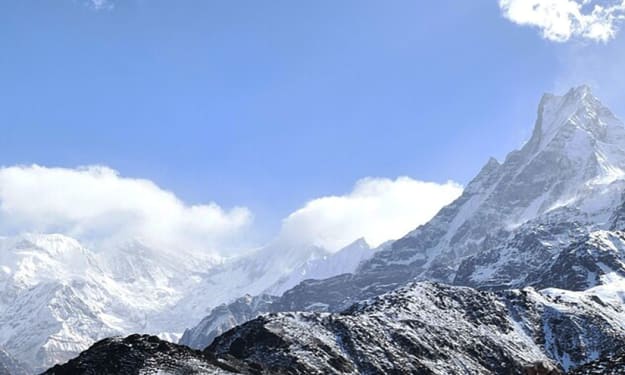The 10 worst cities in the world to live in 2021
From Argel to Harare.
These cities have performed poorly in the rankings over the years due to instability caused by ongoing civil clashes and military conflicts, among other problems.
According to the magazine's report, conditions in these cities have worsened even more in the last year, especially with regard to health, due to Covid-19. While some vaccination implementations have been successful and the reduction of restrictions in several countries has raised hope, the pandemic continues to grow in many countries, such as India.
“Conditions in the poorest cities are likely to get even worse if those places don't get the vaccines they need to prevent the spread of new Covid-19 variants,” the report says. "Weak health systems can come under greater pressure, as was the case in India."
"The pace of recovery in quality of life in most regions will be determined by how effectively the health risks of the pandemic can be controlled through a combination of vaccination, testing, screening and quarantine measures."
The overall average overall livability score dropped seven points when compared to pre-pandemic numbers.
Check out the 10 least livable cities in the world by 2021, according to the Economist Intelligence Unit:
1. Damascus, Syria
Why Damascus, Syria, is a bad place to live?
The capital of the war-torn country of Syria, Damascus is one of the world's oldest cities, inhabited for more than 6,000 years. After decades of war, however, the city is now one of the most dangerous places to live in the world.
2. Lagos, Nigeria
Why Lagos, Nigeria, is a bad place to live?
Most of the things people complain about in Lagos are common to any big city. Traffic is a nightmare. Crime is rampant. Politicians steal. Work is stressful.
But Lagos is special because it's a living hell for many residents, particularly the poor and the vulnerable.
These problems, which seem intractable, are rooted in the political and economic structures of the city. The structural problems, in turn, are the result of the city's history and geography.
Lagos is a city of extremes. While its beaches and skyscrapers make international headlines, it's also home to 16 million people who struggle to find enough food to eat and places to live.
3. Port Moresby, Papua New Guinea
Why Port Moresby is a bad place to live?
Port Moresby is the capital of Papua New Guinea and the country's largest city. The sprawling city is a melting pot of different cultures.
But, according to international organisations, Port Moresby is a bad place to live.
International organisations have ranked Port Moresby as one of the worst cities in the world.
According to Mercer's Quality of Living Survey 2017, Port Moresby is ranked 199th out of the 230 cities included in the survey.
4. Dhaka, Bangladesh
Why Dhaka, Bangladesh, is a bad place to live?
Dhaka's water supply is unreliable.
Dhaka's trash dumps are overflowing.
Dhaka's garbage is burned in open pits.
Dhaka's sewer system is overwhelmed.
Dhaka's air quality is so bad that in 2010, the World Health Organization declared it a "severely polluted" city.
Dhaka has poor water quality.
Dhaka's cost of living is 65 percent higher than the national average.
Dhaka also has poor infrastructure.
Dhaka's roads, railways and mass transit systems are poor and often damaged.
Dhaka's electricity supply is unreliable.
Dhaka's water supply is unreliable.
5. Algiers, Algeria
Why Algiers is a bad place to live?
Algiers is one of the poorest mega cities in the developing world, with a poverty rate of 42% and a high crime rate. The political system is corrupt, and the urban infrastructure is crumbling.
Algiers is the capital and largest city of Algeria, a large country on the Atlantic coast of Africa.
Algiers is home to more than 4 million people (a quarter of Algerians). The city is Algeria's economic, financial, cultural, educational and political center. In the past, many French immigrants from Europe settled in Algiers, creating a sizable minority of ethnic French residents. The 2017 total fertility rate is about 2.2 in Algiers.
The city is not popular among tourists, but it's an important center for scholars and artists. Algiers is home to the Bibliothèque Nationale, the national library, and the Musée National des Arts d'Algérie, the national museum.
The city's population is growing rapidly, which has led to high land prices and overcrowding. Housing shortages are severe, and the city lacks proper sanitation.
Algiers has hot, humid summers, long, cold, dry winters, and mild springs and autumns. The city is prone to flooding.
Algiers grew out of a series of villages that grew up around the Great Mosque of Algiers, founded in 1482. The city grew rapidly in the early 1800s when Algeria became a French colony. After the Battle of Algiers in 1962, Algerian rebel groups took control of the city, and Algiers was the scene of bloody fighting between rebels and government forces.
The remaining 6 cities in the list of the worst cities in the world to live in 2021
6. Tripoli, Libya
7. Karachi, Pakistan
8. Harare, Zimbabwe
9. Douala, Cameroon
10. Caracas, Venezuela
About the Creator
Borba de Souza
Writer and business founder that enjoys writing about history and culture.
Founder of Small Business Hacks https://www.youtube.com/c/SmallBusinessHacks and https://expatriateconsultancy.com. My published books: https://amzn.to/3tyxDe0






Comments
There are no comments for this story
Be the first to respond and start the conversation.